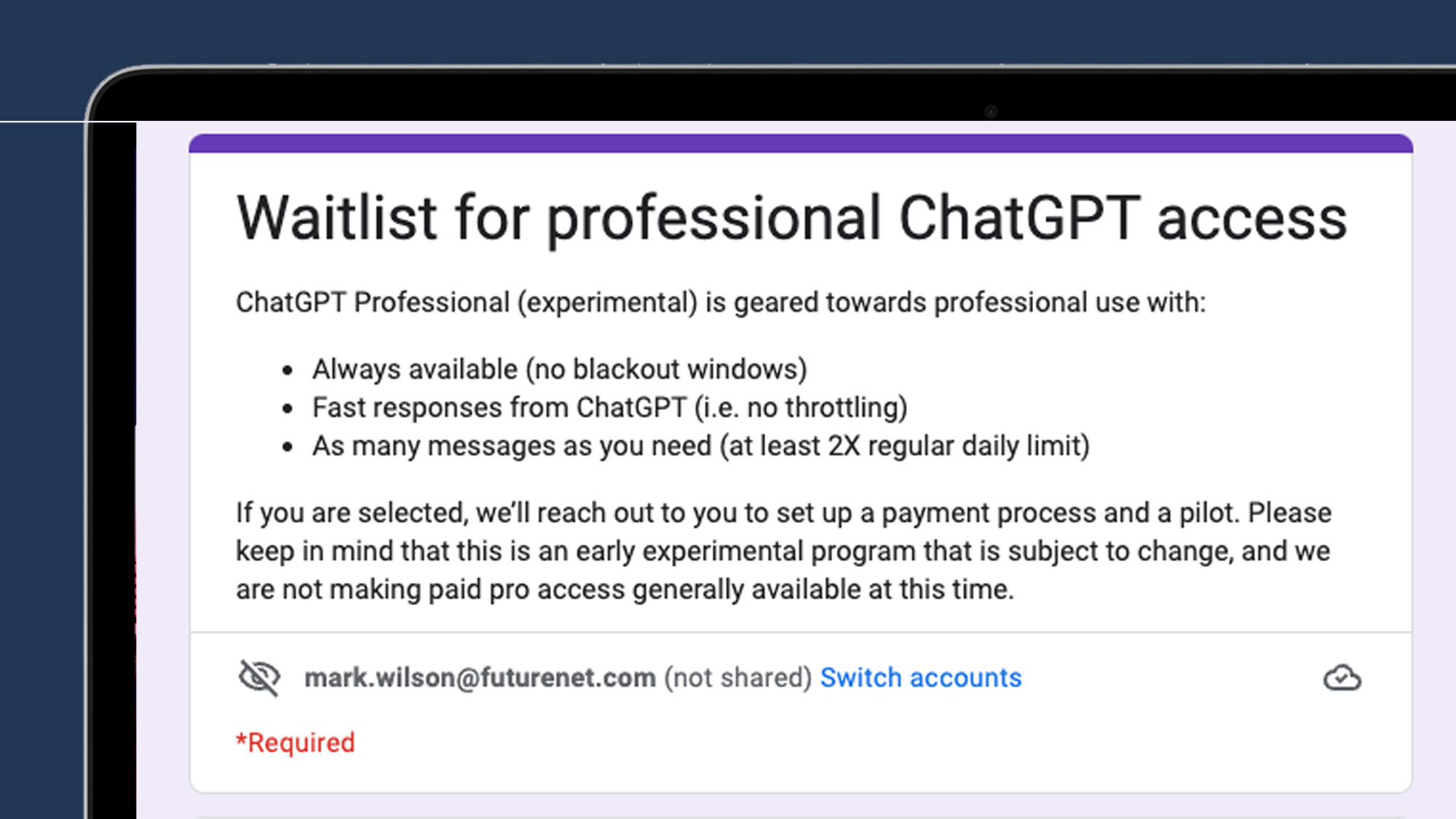Well, it was fun while it lasted – the versatile and currently free ChatGPT has started piloting a premium version that could soon bring restrictions to its unpaid tier.
The AI chatbot has been an almost permanent fixture in the headlines for the past few months, thanks to its ability to help with everything from coding to poetry. But its owner OpenAI has opened a waitlist for a paid version that will seemingly be called ChatGPT Professional.
Right now, it isn't clear how much this tier might cost and exactly how it could impact the current free version of the chatbot. But some of the questions in the waitlist form give us some hints about what could change.
Most of the questions are around pricing, including "at what price (per month) would you consider ChatGPT to be so expensive that you would not consider buying it?". Some follow-up questions continue to dig into the pricing question, followed by a sign-up option to "reach out to me when paid access becomes available".
The move to a paid tier was always inevitable considering the costs involved in running the service. The CEO of OpenAI Sam Altman recently said on Twitter that "the compute costs are eye-watering" and that "we will have to monetize at some point". But the question for most casual users is how exactly the free version might change.
The ChatGPT Professional waitlist form again gives some hints here. It states that the paid service will be "always available (no blackout windows)", that you'll get "fast responses from ChatGPT (i.e no throttling" and that you can post "as many messages as you need (at least 2x regular daily limit)".
Analysis: The chatbot evolves

Collectively, those hints give us a good idea of the kind of restrictions that could soon come to ChatGPT's free version. But a likely alternative way to access ChatGPT for many people will be through apps like Microsoft's Office suite.
Microsoft already has a major stake in ChatGPT and a report from The Information recently stated that the tech giant is planning to bring the chatbot's AI powers to the likes of Outlook, Word and Powerpoint, giving you the option of automatically generating text using simple prompts.
That seems increasingly likely given another report from Semafor that Microsoft is looking to invest as much as $10 billion into OpenAI, which created ChatGPT. This deal could apparently involve Microsoft getting three-quarters of OpenAI's profits until it makes the money back, which again explains the apparently ramping up of ChatGPT Professional.
These moves all hint at a future when ChatGPT is simply a function of other apps, rather than a standalone service. With Microsoft seemingly confident about the tech's future, it'll be fascinating to see how Google responds, given ChatGPT's threat to its increasingly dated search interface.
No comments:
Post a Comment